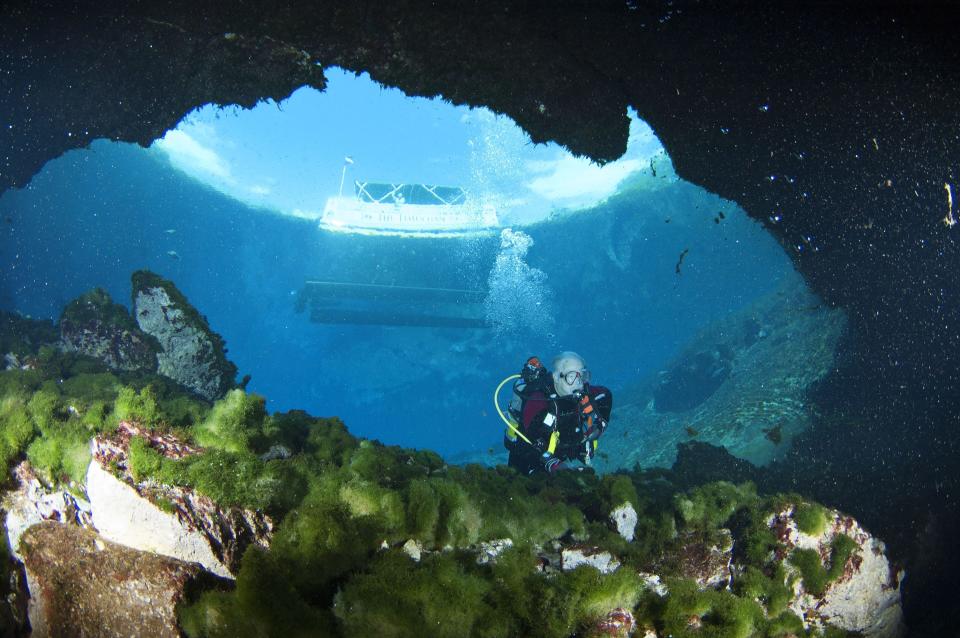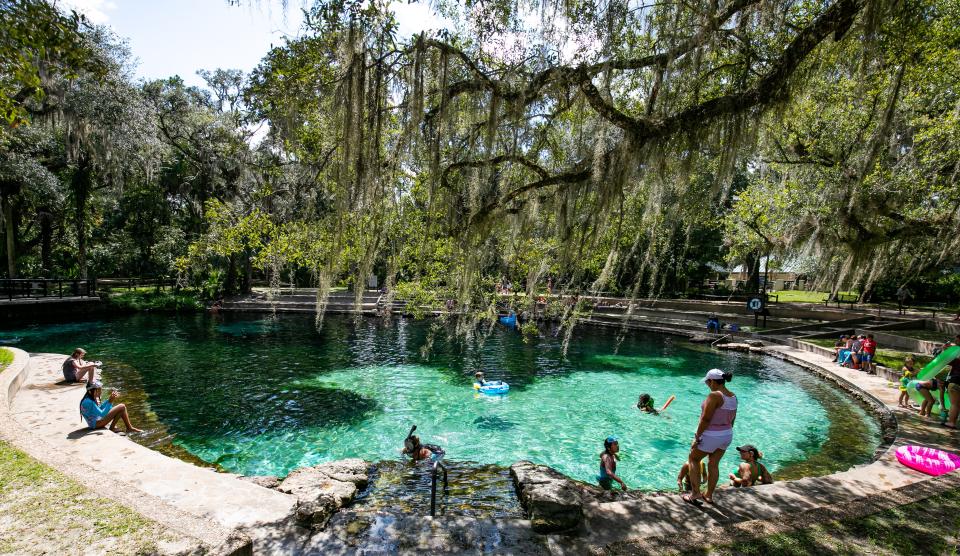Navigating a divided political landscape to protect our springs
Scientists throughout Florida agree that our freshwater springs are sick, plagued with nitrate pollution and suffering from lost flow. Yet the state agencies charged with preventing pollution and protecting the water supply, the Florida Department of Environmental Protection and the water management districts — all with directors appointed by our governor — insist they are restoring and protecting our springs.
The politically independent, nonprofit springs science and advocacy groups — the Howard T. Odum Florida Springs Institute, the Florida Springs Council and the various springs alliances — disagree. These organizations argue that the health of our springs continues to decline.
Who is right? Given the political ties between state agencies and Florida’s governor, and given today’s polarized political landscape, how do we know which springs-related messages to trust? Are there tools we aren’t using that could help us make better decisions when scientists and policymakers disagree about what actions to take?
More Messages from the Springs Heartland:
Florida provides only the 'illusion of protection' for our springs
Deepening our spiritual connection with water
The Springs Heartland is a wellspring for writers
I think the answer to that question is yes and that better guidance could be obtained with changes and clarifications to our current water laws. If and how those laws could be changed raises other questions — but for the sake of our springs, these are questions we need to be asking.
One problem is that state agencies are required to determine that permits to pump water from the Floridan Aquifer serve the “public interest” — but “public interest” is not defined. Is the public interest served when one person or one corporate entity is granted a huge pumping permit that has the potential to harm nearby springs and is objected to by almost 20,000 Florida citizens? If an attempt is made to define “public interest,” who gets to define it?

An avenue of guidance for water policy decisions can be found within the Precautionary Principle (you can Google it). The principle’s main point is that when scientists disagree about the results of certain actions, as scientists frequently do — for example, about whether and how much the pumping of huge amounts of water will affect nearby springs — the action that should be chosen is the one that causes the least amount of harm. Then, if scientists should later come to agreement, actions could be modified.
Phrased another way, the Precautionary Principle says that lack of scientific certainty is no reason to delay actions to avoid serious or irreversible harm to natural systems.
At its core, this principle is “conservative” in the sense that it is “cautious,” “moderate” and “reasonable,” according to dictionary definitions.
Could Florida adopt the Precautionary Principle to guide environmental policy decisions? That could help our springs, but how could such an idea gain the support of lawmakers?
Another conservative idea that could help our springs can be found in the Public Trust Doctrine, a legal principle establishing that certain natural and cultural resources are to be preserved for public use. How different could our springs look if we managed the groundwater in the Floridan Aquifer beneath our feet — the water that feeds our springs and provides our drinking water — very conservatively, the same way we would manage a financial trust fund for our children?
I have talked to several lawyers about using the Public Trust Doctrine to protect our springs and, from what I understand, Florida’s public trust laws are not strong enough for that idea to work. So I wonder: What, if anything, could be done to strengthen Florida’s public trust laws? Could people be working now to make those changes?

One more idea for positive change is the effort to place a new state constitutional amendment, the Florida Right to Clean and Healthy Waters, on Florida’s 2024 ballot. That amendment would grant people (instead of natural systems) the right to clean water; see www.floridarighttocleanwater.org. Petitions supporting this idea are being gathered now and, if you care about our springs, I encourage you to check out this effort and to help spread the word.
With regard to messaging about springs, I hope you realize, when you read about how much money the state of Florida is spending to restore and protect our springs, that — as one springs advocate wrote me recently — it’s “a common deceptive diversion … claiming inputs as results.”
One recent political ad claimed that $275 million is now earmarked for springs restoration. But what will that amount actually do, given that non-point source agricultural pollution (the big water pollution culprit here in the Springs Heartland) is not regulated by law and that the water management districts refuse to cap water withdrawals to restore lost spring flows?
Remember that one person’s “regulation” is another person’s or natural system’s “protection.” Remember that laws are made and changed, and their enforcement supervised, by the people we elect to public office. Vote accordingly!
Lucinda Faulkner Merritt is a writer and springs lover who lives in Fort White.
Join the conversation
Letters to the editor present the opinions of readers on news stories and other pieces published by The Sun. Share your opinion by sending a letter to the editor (up to 200 words) to letters@gainesville.com. Letters must include the writer's full name and city of residence. Additional guidelines for submitting letters and longer guest columns can be found at bit.ly/sunopinionguidelines.
Journalism matters. Your support matters.
Get a digital subscription to the Gainesville Sun. Includes must-see content on Gainesville.com and Gatorsports.com, breaking news and updates on all your devices, and access to the eEdition. Visit www.gainesville.com/subscribenow to sign up.
This article originally appeared on The Gainesville Sun: Lucinda Faulkner Merritt: What political messages on springs to trust

